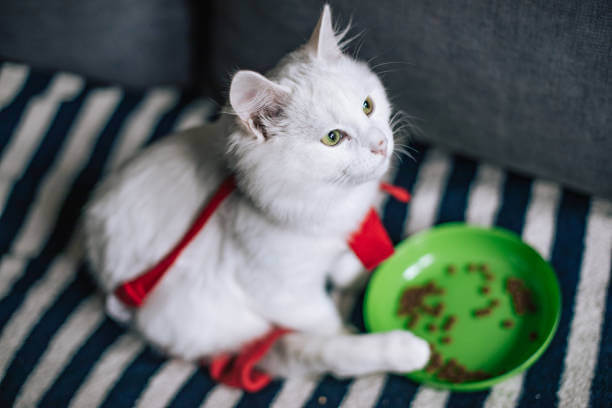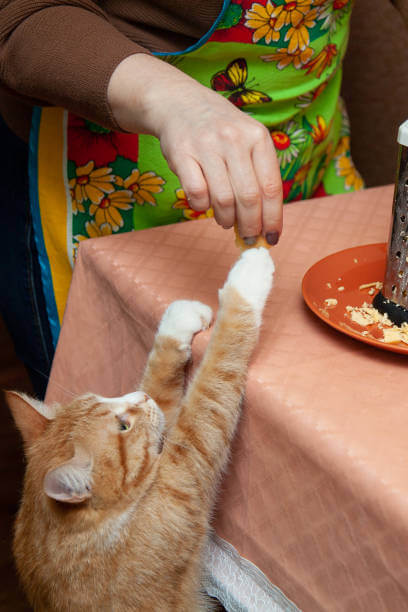Unsure if your Cats Eat Pistachios?. Find out the nutritional facts about feeding your cat pistachios from veterinary professionals. As cat owners, we constantly find ourselves questioning what foods are safe to share with our feline companions. One particular snack that often piques our curiosity is pistachios. These delectable nuts are not only a favorite among humans but also make for a convenient and nutritious snack. But can cats enjoy pistachios too? In this article, we will delve into the world of feline nutrition and explore whether cats can safely consume pistachios. To provide you with accurate information, we have consulted veterinarians to review the nutritional facts. So let’s uncover the truth about feeding pistachios to your beloved cat.

The Feline Diet: What Do Cats Need?
Before delving into the specific question at hand, it’s essential to understand a cat’s dietary requirements. Unlike humans or even dogs, cats require certain nutrients found exclusively in meat to meet their nutritional needs.
Protein – The Foundation of Feline Nutrition
Protein is the building block of a cat’s diet and plays a vital role in maintaining their overall health. It contributes to muscle development, supports organ function, and aids in repairing body tissues. While some plant-based proteins exist, animal-based proteins provide cats with essential amino acids that cannot be synthesized by their bodies.
Taurine – A Crucial Amino Acid
Taurine is an amino acid that holds immense importance for feline health. Cats require taurine in their diet as they cannot produce sufficient amounts naturally. Taurine deficiency can lead to severe health issues such as vision problems, heart disease, and even reproductive complications.
Essential Vitamins and Minerals
In addition to protein and taurine, cats require specific vitamins and minerals for optimal health. These include vitamin A, vitamin D, calcium, phosphorus, and various B vitamins. While some of these nutrients can be found in small quantities within plant-based sources, they are most readily available in animal products.
Now that we understand the unique dietary requirements of cats let’s explore whether pistachios align with their nutritional needs.
Pistachios: A Nutritional Breakdown
Pistachios are undoubtedly a tasty and nutritious snack for humans. Packed with protein, healthy fats, fiber, and a range of vitamins and minerals, they offer numerous health benefits. However, when it comes to cats, pistachios may not be the optimal choice due to several reasons.
High-Fat Content
While fats are an essential part of a cat’s diet, excessive fat intake can lead to weight gain and digestive issues. Pistachios have a relatively high fat content compared to other nuts. Feeding your cat too many pistachios may contribute to weight gain or even pancreatitis—an inflammation of the pancreas.
Salted vs. Unsalted Pistachios
Many commercially available pistachios are salted for enhanced flavor. However, excessive salt intake is harmful to cats and can lead to dehydration and kidney problems. Even unsalted pistachios should be fed sparingly due to their high-fat content.
Potential Choking Hazard
Pistachios have hard shells that need to be removed before consumption. The shells pose a choking hazard for cats and may cause blockages in their digestive tract if swallowed accidentally.
Considering these factors, it is best to avoid feeding your cat pistachios altogether. Instead, focus on providing them with a well-balanced diet specifically formulated for feline nutrition.
Alternatives: Safe Snacks for Your Cat
Fortunately, there are plenty of safe and healthy snacks you can offer your feline friend as an occasional treat:
Lean Cooked Meat
Lean cooked meats such as chicken, turkey, or even small amounts of beef can be a delightful treat for your cat. Remember to remove any bones, skin, and seasonings before offering it to them.
Cat-Safe Fruits and Vegetables
Certain fruits and vegetables are safe for cats in small quantities. Offer tiny portions of steamed carrots, cucumber slices, or small pieces of watermelon as an occasional snack.
Commercial Cat Treats
Numerous commercial cat treats are designed specifically to cater to a cat’s dietary needs. Look for treats that are low in fat and contain high-quality animal-based proteins.
By opting for these alternatives instead of pistachios, you can ensure your beloved feline receives a balanced diet while still enjoying the occasional treat.
Proper Cat Diet: The Takeaway
To recap, cats require a diet composed predominantly of animal-based proteins and supplemented with essential vitamins and minerals. Pistachios may not align with their dietary needs due to their high-fat content and potential choking hazard. Therefore, it is best to avoid feeding your cat pistachios or any other type of human snack.
Instead, opt for lean-cooked meats or cat-safe fruits and vegetables. You can also look for commercial treats designed specifically for cats to provide them with a balanced snack without compromising their health. By following these guidelines, you can ensure your beloved feline companion remains happy and healthy!

Tips For Feeding Cats Eat Pistachios?
Although pistachios may not be the ideal choice for cats, they can still enjoy them in moderation. Here are some tips to ensure your cat’s safety while snacking on pistachios:
- Always remove the shells before feeding your cat — this will help reduce the risk of choking or digestive blockages.
- Give small portions at a time and limit their intake to one or two nuts per day.
- Only offer unsalted pistachios as excessive salt intake can lead to dehydration and kidney problems.
- Monitor your cat’s behavior closely for any signs of digestive issues, weight gain, or other health concerns.
By following these guidelines, you can ensure your cat enjoys a safe and healthy snacking experience with pistachios.
Final Thoughts
Cats are unique creatures with distinct dietary requirements. Pistachios, while being an excellent source of nutrition for humans, may not be the best choice when it comes to cats due to their high fat content and potential choking hazard. Therefore, it is recommended that pet owners opt for cat-safe snacks or commercial treats instead.
If you choose to feed your cat pistachios, ensure you follow the above-mentioned safety precautions to minimize the risk of any hea
health complications. With proper dietary care, you can give your beloved feline companion a long and happy life! lth complications. With proper care and nutrition, your feline friend can enjoy a long and happy life!
FAQS
Q: Can cats eat pistachios?
A: Yes, cats can eat pistachios in moderation. However, it is important to remove the shells and offer only unsalted nuts as excessive salt intake can be harmful to their health. Additionally, keep an eye out for any digestive issues or weight gain that may result from eating too many of these high-fat treats.
Q: What is the best snack for cats?
A: Lean-cooked meats, such as chicken or turkey without bones, skin, or seasoning are an excellent source of protein and other essential nutrients for cats. You can also offer small portions of steamed carrots, cucumber slices, or small pieces of watermelon as healthy alternatives to commercially available treats.
Q: Are commercial cat treats safe?
A: Yes, most commercially available cat treats are specifically designed to meet a cat’s nutritional needs. Look for snacks that are low in fat and contain high-quality animal-based proteins. However, always read the ingredients list carefully before buying them to make sure they are suitable for your feline friend.
Q: What should I do if my cat is overweight?
A: If your cat is overweight, it is recommended to switch to a diet specifically formulated for weight management. Additionally, you should reduce portion sizes, increase physical activity levels, and limit the intake of high-fat treats such as pistachios. Consulting with your veterinarian can help you devise an effective dietary plan for your feline companion.
Q: What other snacks can I offer my cat?
A: There are numerous healthy and safe snacks you can offer your feline friend as an occasional treat. Lean-cooked meats, such as chicken or turkey without bones, skin, or seasoning are a great source of protein and other essential nutrients.
Conclusion
In conclusion, offering your feline friend a healthy and balanced diet is important to ensure they remain happy and healthy. Pistachios may be an occasional treat for cats, as long as you remove the shells and keep portions small. However, it is generally recommended to opt for cat-safe snacks or commercial treats specifically formulated with felines in mind instead. Consult your veterinarian if you have any questions or concerns regarding your cat’s nutrition and health. Through proper nutrition, exercise, and plenty of love and affection, you can give your feline companion a long and happy life!
